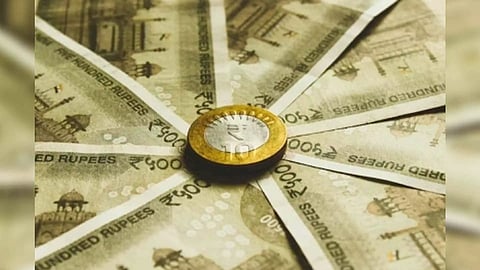

NEW DELHI: A RBI panel has suggested that in the long run, India will achieve higher level of trade linkages with other countries, as a result of which the rupee is likely to reach a level where it would be widely used, and proposed the currency’s inclusion in International Monetary Fund’s (IMF) Special Drawing Rights (SDR) basket.
The panel, whose report on 'Internationalisation of Rupee' was released on Wednesday, said that in the coming days, “India will achieve higher level of trade linkages with other countries and improved macro-economic parameters, and rupee may ascend to a level where it would be widely used and preferred by other economies as a ‘vehicle currency’. Thus, efforts should be made for the inclusion of rupee in IMF’s SDR basket”.
SDR is an international reserve asset created by the IMF to supplement the official reserves of its member countries. It is a potential claim on the freely-usable currencies of IMF members.
SDRs can provide a country with liquidity. It is defined by a basket of currencies, namely the US dollar, euro, Chinese yuan, Japanese yen and British pound.
The panel or the inter-departmental group (IDG), headed by RBI’s Executive Director R.S. Ratho, suggested a slew of short-term measures, like designing a template and adopting a standardised approach for examining the proposals on bilateral and multilateral trade arrangements for invoicing, settlement and payment in rupee and local currencies.
It also suggested that efforts should be made to enable rupee as an additional settlement currency in existing multilateral mechanisms such as Asian Clearing Union (ACU).
The panel also recommended facilitating local currency settlement (LCS) framework for bilateral transactions in local currencies and operationalising bilateral swap arrangements with the counterpart countries in local currencies.
Opening of rupee accounts for non-residents (other than nostro accounts of overseas banks) both in India and outside India should be encouraged, the panel recommended.
Integrating Indian payment systems with other countries for cross-border transactions should also be implemented, it said.
The RBI panel also stressed on strengthening financial markets by fostering a global rupee market and promoting India as the hub for rupee transactions and price discovery.
Facilitating the launch of BIS Investment Pools (BISIP) in rupee and inclusion of government securities in global bond indices should be ensured, the panel said in its report.
It also suggested recalibration of the Foreign Portfolio Investor (FPI) regime and rationalisation of the extant Know Your Customer (KYC) guidelines, as well as providing equitable incentives to exporters for rupee trade settlement.
As medium-term measures, the RBI panel suggested a review of taxes on Masala bonds and international use of Real Time Gross Settlement (RTGS) for cross-border trade transactions, as well as inclusion of rupee as a direct settlement currency in the Continuous Linked Settlement (CLS) system.
Also, it called for examination of taxation issues in financial markets to harmonise tax regimes in India and other financial centres.
The panel was formed by the RBI to examine the internationalisation of rupee and the objective was to review the extant position of rupee as an international currency and to frame a roadmap for its internationalisation.